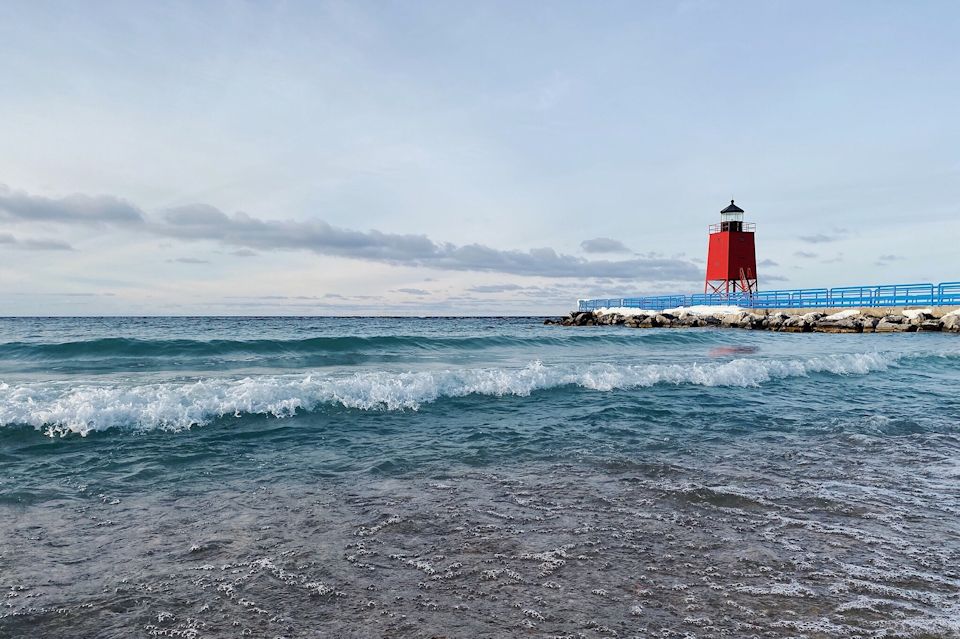When it comes to creation, the Rev. John Hice calls for mindfulness, saying, “Can’t we often ask ourselves, ‘How does this thing I’m doing help or hurt God’s earth?'”
JOHN HICE
Superintendent, East Winds District
My friend disagreed. He didn’t believe in climate change. So, we debated in the bond of Christian love.
In the end, we found common ground: “The earth is the Lord’s and the fulness thereof.” (Psalm 24) Whether the climate is in peril by the heating of the planet, we agreed that God made this place, and it is our job to take care of it.
So, God created humankind in his image…God blessed them, and God said to them, “Be fruitful and multiply, and fill the earth and subdue it; and have dominion over the fish of the sea and over the birds of the air and over every living thing that moves upon the earth…And it was so. God saw everything that he had made, and indeed, it was very good. (Genesis 1:27-31, selected verses, NRSV)
Read the scripture literally or with studies of word and context: you come to the same place. Creation is sacred because God made it. So, guard it and manage it as those who are responsible for its life.
William Shatner soared into space and saw Planet Earth cast in the void of the universe. He looked at its beauty and was awed. “We need to take care of the planet, but it’s so fragile,” he said. “There’s this little, tiny blue skin that is 50 miles wide, and we pollute it, and it’s our means of living.” [1]
I think he might have seen Earth with the eye of Genesis. It is an exceptional miracle. According to National Geographic, Earth is 259,875,159,532 cubic miles by volume.[2] Though some life can be found deep within Earth’s crust, most is found in the relatively thin layer that ranges from 500 meters below the ocean floor to six kilometers above sea level,[3] occupying only about 0.00008% of the mass of the planet: a very thin skin of life. In the vastness of space, this is the little realm of life.
Dominion is not our license to consume and destroy. It is God’s assignment to take care of the place…be its good stewards…whether the climate is changing or not.
Common ground for the sake of Creation. The Twenty-Sixth United Nations Climate Change Summit (COP26) has concluded. No doubt, its assumptions and agreements will be debated for a long time. Meanwhile, the care of God’s Creation in every aspect remains vital. Water, air, and solid waste pollution still devastate living conditions worldwide. Many chemicals used for production and agriculture still poison the biosphere. How can this be mitigated?
After hurricanes destroyed homes in Puerto Rico, I looked at mounds of trash left along the island roads. Mixed in the trash were plastic shopping bags, lying on the roadside like everywhere else in the world, moving down the slopes by torrents of rain. I realized these bags, thrown out high above sea level in the interior of the island, were bound to float to streams and eventually find their way to the ocean. Then, I realized that littering laws in Michigan are aimed at more than keeping neighborhoods neat. Here, too, water takes littered trash from curbs to rivers to the Great Lakes, finally flushing them out to sea where the plastic breaks into minuscule bits and is consumed by fish and fowl. [4] Perhaps when you buy a fish sandwich, you could eventually eat the plastic bag it came in!
I’m not saying industry is evil or that we shouldn’t use plastic. But God has called us to be mindful. It makes a difference when we turn off the water while brushing our teeth; turn off the lights when we leave a room; eat food we grow in our own gardens; grow milkweed to give butterflies a chance. Can’t we often ask ourselves, “How does this thing I’m doing help or hurt God’s creation?”
Mindfulness. Can’t our congregations propose behaviors that honor the earth? Can’t we employ principles of sustainable architecture, cut energy consumption, and shop for items less destructive of forests? Can’t we call for policies that allow farmers to harvest all their crops and help them serve markets closer to home? Can’t we advocate for the protection of life created by the hand of God?
These are stands we all can take for the care of God’s priceless gift. Liberal or conservative: the care of this miracle is our urgent responsibility; stands we can take on common ground for the sake of the One who made all this…and us.
~ Learn more about the stands we can take by participating in a Church & Society webinar series, “Climate & Community: Faithful Action for Climate Justice.
Notes:
[1] “William Shatner says Earth looked ‘so fragile’ from space on Blue Origin flight.” Elizabeth Howell, Space.com. © Future US, Inc. 11 West 42nd Street, 15th Floor, New York, NY 10036. October 14, 2021. https://www.space.com/william-shatner-spaceflight-earth-fragile-video
2] “Turn Up the Volume,” National Geographic Headquarters, 1145 17th Street NW, Washington, DC 20036. © 1996 – 2021 National Geographic Society. All rights reserved. https://www.nationalgeographic.org/media/turn-up-volume-wbt/
[3] “The Biosphere,” LibreTexts. The LibreTexts libraries are Powered by MindTouch® and are supported by the Department of Education Open Textbook Pilot Project, the UC Davis Office of the Provost, the UC Davis Library, the California State University Affordable Learning Solutions Program, and Merlot. Last updated January 3, 2021. https://bio.libretexts.org/Bookshelves/Ecology/AP_Environmental_Science/01%3A_Chapters/1.05%3A_The_Biosphere
[4] Read “You Eat Thousands of Bits of Plastic Every Year” Though abundant in water, air, and common foods, it’s unclear how it might affect our health. Sarah Gibbens, National Geographic, June 2019. https://www.nationalgeographic.com/environment/article/you-eat-thousands-of-bits-of-plastic-every-year?loggedin=true
Last Updated on January 10, 2023

